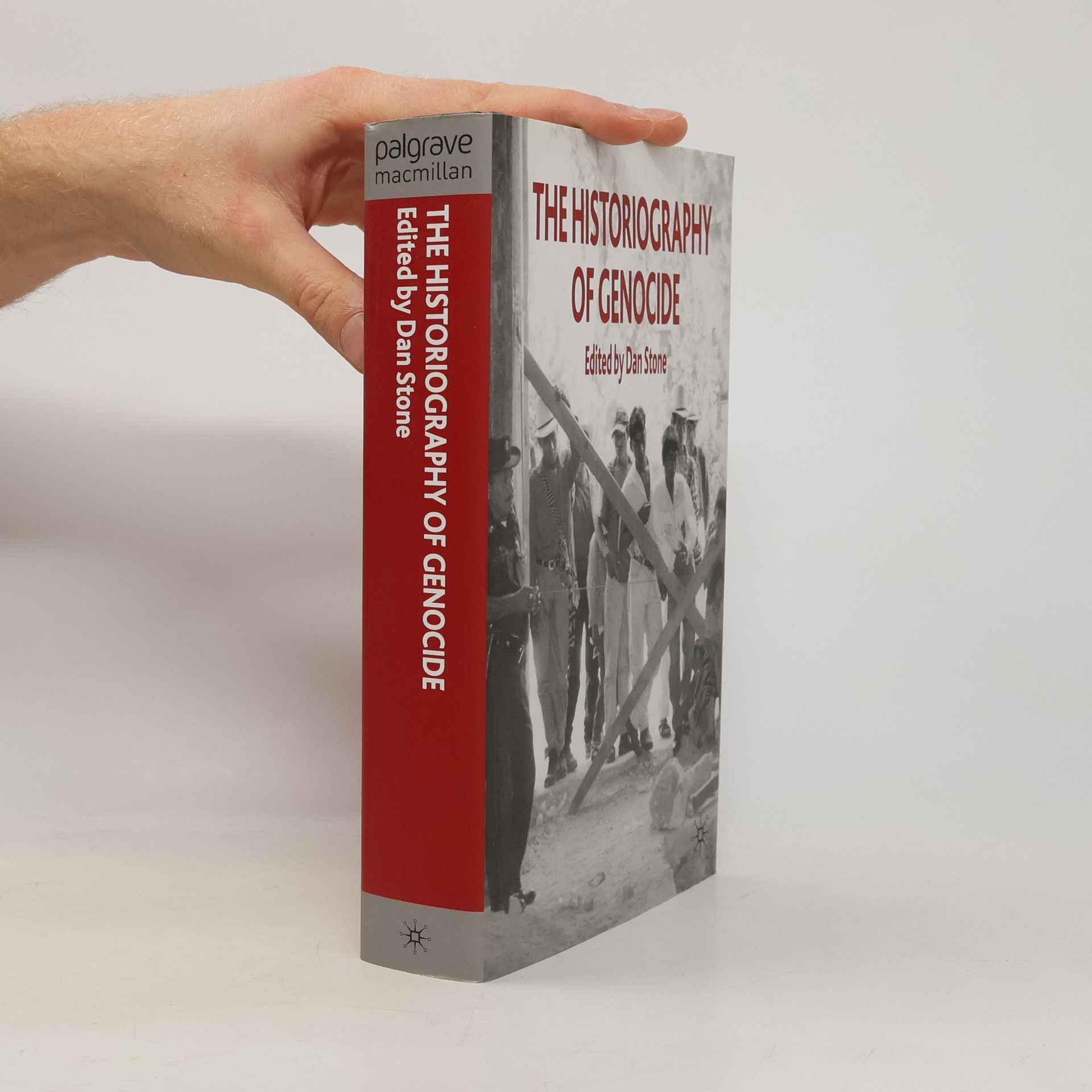This history delves into the Holocaust, presenting it not merely as a historical event but as a persistent trauma that continues to affect modern society. It challenges conventional narratives and emphasizes the ongoing impact of these brutal events, suggesting that the scars of the Holocaust are still evident in contemporary culture and collective memory. Through this lens, the book invites readers to consider the lasting implications of such atrocities on humanity.
Dan Stone Orden de los libros (cronológico)
Dan Stone es un historiador de la Europa moderna cuyo trabajo se centra en el fascismo, el genocidio comparativo, la teoría de la raza y la historia de la antropología. Su escritura profundiza en los aspectos más oscuros de la historia humana, buscando comprender las complejas fuerzas sociales y políticas que conducen a la violencia y la opresión. El enfoque de Stone es analítico, centrándose en la comprensión de los eventos históricos dentro de su contexto más amplio. Sus obras ofrecen una mirada penetrante a las facetas traumáticas de la historia moderna, incitando a la reflexión sobre las causas y consecuencias de las ideologías extremistas y el exterminio.






Psychoanalysis, Historiography, and the Nazi Camps
Accounting for Survival
- 128 páginas
- 5 horas de lectura
The narratives of Dutch survivors Eddy de Wind, Louis Micheels, and Elie A. Cohen provide a sobering perspective on survival in Nazi camps, contrasting sharply with the more optimistic views of contemporaries like Bettelheim and Frankl. Their self-critical accounts, informed by psychoanalytic practice, reveal the complexities of survival beyond mere positivity and decisiveness. By comparing these writings with those of female doctors from Auschwitz, the book highlights evolving psychoanalytic concepts and how modern Holocaust historiography embraces insights previously overlooked.
Dan Stone tells the story of the last great unknown archive of Nazism, the International Tracing Service, set up to find missing persons at the end of World War II. Spanning across death marches, slave labour, and liberation, Fate Unknown uncovers the history of this remarkable archive which holds over 30 million documents.
The Liberation of the Camps
- 304 páginas
- 11 horas de lectura
A moving, deeply researched account of survivors' experiences of liberation from Nazi death camps and the long, difficult years that followed
The Holocaust
- 464 páginas
- 17 horas de lectura
A revelatory new history that reexamines the brutal reality of the Holocaust—and reinterprets the events as a living trauma from which modern society has not yet recoveredThe Holocaust is much discussed, much memorialized, and much portrayed. But there are major aspects of its history that have been overlooked. Spanning the entirety of the Holocaust, this sweeping history deepens our understanding. Dan Stone—Director of the Holocaust Research Institute at Royal Holloway, University of London—reveals how the idea of “industrial murder” is incomplete: Many were killed where they lived in the most brutal of ways. He outlines the depth of collaboration across Europe, arguing persuasively that we need to stop thinking of the Holocaust as an exclusively German project. He also considers the nature of trauma the Holocaust engendered, and why Jewish suffering has yet to be fully reckoned with. And he makes clear that the kernel to understanding Nazi thinking and action is genocidal ideology, providing a deep analysis of its origins.Drawing on decades of research, The Holocaust: An Unfinished History upends much of what we think we know about the Holocaust. Stone draws on Nazi documents, diaries, post-war testimonies, and even fiction, arguing that, in our age of increasing nationalism and xenophobia, understanding the true history of the Holocaust is vital.
The collection features essays by Professor Dan Stone, exploring critical themes such as Fascism, Nazism, and the Holocaust. It provides in-depth analysis and insights relevant to scholars and students engaged in antisemitism, genocide studies, and the historical impacts of World War II. The work serves as a valuable resource for understanding the complexities of these significant historical events and ideologies.
The Historiography of Genocide
- 655 páginas
- 23 horas de lectura
The Historiography of Genocide is an indispensable guide to the development of the emerging discipline of genocide studies and the only available assessment of the historical literature pertaining to genocides.
Mít odpuštěné hříchy je úžasné. Strávit věčnost s Bohem je skvělé. Ale proč je tedy křesťanský život takový zápas? Protože odpuštění představuje jen část evangelia! TAJEMSTVÍ EVANGELIA nespočívá v tom, že se snažíme být z vlastních sil "dobrými" křesťany, ale v tom, že Kristus, který je v nás, žije naším prostřednictvím, zatímco v Něm odpočíváme.
Having Gods forgiveness is wonderful. Spending eternity with God is great. But for now, where is the abundant life Jesus promised? Why is the Christian life such a struggle? Because getting forgiven is only half of the gospel The Rest of the Gospel is not us striving on our own to be good Christians, but Christ in us, living His life through us as we rest in Him.
